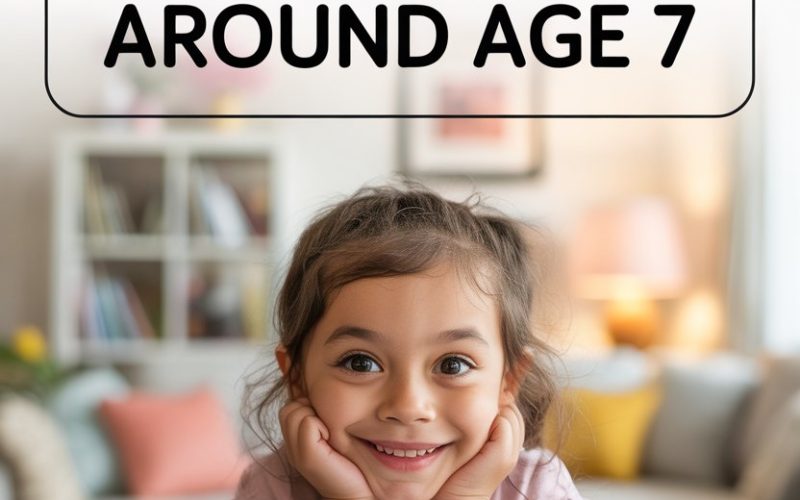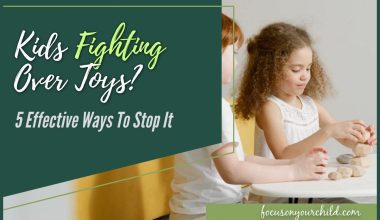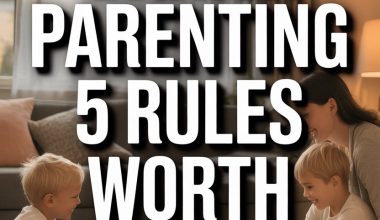Ever catch your child insisting the empty biscuit tin ate itself? Or absolutely swearing they brushed their teeth—while sporting suspiciously mint-free breath?
If your pint-sized storyteller is about seven, you’re not alone.
Around this age, “truth bending” seems to hit its peak.
It’s baffling, exasperating, and, believe it or not, developmentally normal.
Welcome to the Age of the Tall Tale
Suddenly, your once-earnest toddler is spinning tales about invisible unicorns wreaking havoc or denies all knowledge of how the remote control ended up in the toilet.
This shift doesn’t mean you’re raising a future criminal mastermind. Quite the opposite. Around seven, children’s brains are taking a giant leap in social and cognitive skills.
Psychologists have studied this “age of reason” for decades. Around this time, kids develop a sharper sense of the difference between reality and imagination.
That means they’re fully aware they’re bending the truth—which, ironically, is a good thing in terms of cognitive milestones.
Why Lying Becomes So Tempting at Seven
The urge to fib isn’t purely mischievous. Seven-year-olds are in the sweet spot of wanting to impress, avoid trouble, and experiment with independence.
It’s also the era of “theory of mind”—when your child figures out that not everyone knows what they’re thinking. Suddenly, it dawns on them: If I say something, and Mum can’t read my mind, maybe it’ll work.
Who knew child development included plotting alibis?
Motives Behind the Make-Believe
Every fib has a backstory, and often it’s more complicated than you’d guess. Some common motivations for your seven-year-old’s creative storytelling include:
- Avoiding consequences: No one enjoys owning up to spilling juice on the new carpet, especially when the look on your face could curdle milk.
- Gaining approval or attention: Telling classmates you’ve met Taylor Swift might earn serious playground clout (even if you think “Taylor Swift” is a type of cheese).
- Testing boundaries: Kids this age are constantly poking at the limits. If their fib goes unnoticed, what else can they get away with?
- Protecting others: Sometimes, a child will lie to shield a friend or sibling. Think of it as “loyalty over lawfulness.”
- Filling in gaps: When memory fails, imagination steps in. A child might honestly believe their made-up version of events.
Understanding why your child is fibbing can help you tailor your response—without feeling like you’re starring in a low-budget detective show.
What the Science Says About Lying at This Age
Developmental psychologists like Victoria Talwar have spent years studying why kids fib. In fact, her research suggests that nearly all children will tell a lie by age seven.
One study from the University of Toronto found that children who lie earlier might actually have higher verbal IQs—because stretching the truth is a sign of cognitive flexibility.
Yes, you read that right: your child’s creative explanations could be a mark of intelligence, not delinquency.
That said, chronic dishonesty can occasionally flag underlying issues like anxiety or stress. So, while the odd porky pie is developmentally typical, it’s wise to keep an eye out for patterns.
How Lying Changes as Kids Grow
At four, fibs are charmingly obvious (“The dog ate my homework,” when you don’t even own a dog). By seven, the stories get more elaborate.
Kids start adding details and covering their tracks—sometimes with the cunning of a seasoned soap opera writer.
This is partly because they’ve gained a firmer grip on cause and effect. Seven-year-olds can imagine not just what they want to happen, but also what you might believe.
They can hold two ideas in their head at once, which lets them construct a plausible lie—and then remember to stick to it.
Impressive? Slightly terrifying? Possibly both.
Why Honesty Still Matters
While lying at seven isn’t a sign of moral decay, honesty still deserves a starring role in your family. Children look to you for cues about what’s acceptable.
If fibs are ignored or (worse) rewarded, they become a habit faster than ice cream melts on a summer’s day.
Research from the University of California, San Diego highlights the role of parental modeling. Kids with honest parents are significantly less likely to become chronic fibbers themselves.
The old chestnut “do as I say, not as I do” doesn’t hold much water here.
Setting the Scene for Truthful Kids
Before you reach for the polygraph, a few tweaks to your daily routine can set the stage for honesty.
- Model truth-telling: Even white lies, like “No more biscuits left” when you’re hiding them for yourself, send a message. Try to be truthful in your everyday interactions.
- Praise honesty: When your child owns up to a mistake, celebrate their courage. “That was really brave of you to tell me about the vase.” This approach encourages repeat performances.
- Make it safe to confess: If every slip-up leads to a full-scale meltdown, expect more cover-ups. Keep your cool—at least on the outside—when your child admits wrongdoing.
- Avoid setting traps: Questions like “Who drew on the wall?” when you know the answer create anxiety and invite fibbing. Try, “This marker ended up on the wall—can we talk about what happened?”
- Use stories and books: Tales like “The Boy Who Cried Wolf” or “Pinocchio” open the door to conversations about honesty without sounding preachy.
How to Respond When Your Child Lies
When you catch your small human in a fib, your reaction matters. A knee-jerk punishment or dramatic lecture might shut down communication. Instead, try these steps:
- Stay calm. Channel your inner stoic, even if you’re tempted to laugh (or cry).
- Get curious, not accusatory. Ask, “What made you say that?” instead of “Why did you lie?”
- Explain why honesty matters. Use real-life examples: “When people are truthful, it’s easier to solve problems together.”
- Keep consequences reasonable. If there’s a natural consequence—like mopping up spilled milk together—focus on that, rather than a separate punishment for the lie.
Research from the University of Virginia supports the idea that punishment often encourages sneakier lying, rather than less of it. Honest, open dialogue is your best bet.
When Lying Signals Something Deeper
Every child tells fibs, but if you’re seeing constant dishonesty—especially about important things—don’t ignore it. Chronic lying can sometimes be a mask for anxiety, low self-esteem, or stress.
If your child seems fearful, withdrawn, or their stories become grandiose and implausible, a chat with a child psychologist might be wise.
Sometimes, especially in chaotic or high-pressure environments, lying can feel safer than telling the truth. Creating a home where mistakes aren’t the end of the world goes a long way.
Encouraging Honesty Without Turning Into a Truth Sergeant
It’s tempting to launch a full investigation every time your child’s story doesn’t add up. Resist the urge, or you’ll both wind up exhausted.
Kids respond best to gentle guidance, not cross-examination.
Try these conversation starters:
- “I love that you’re creative, but it’s important we tell the truth.”
- “It can be hard to admit mistakes. What would help you feel safe to tell me next time?”
- “Everybody slips up sometimes. Shall we fix it together?”
Humour helps, too. If your child claims the goldfish did their maths assignment, you can chuckle and say, “That’s one clever fish. Next time, maybe ask for help before the fish gets involved.”
You’re the Guide, Not the Lie Detector
Your child’s storytelling streak isn’t a sign you’ve failed as a parent. It’s part of growing up—and a great chance to build trust.
By responding with empathy, curiosity, and a healthy dose of humour, you’ll help your child learn that honesty isn’t scary.
And the next time someone insists the cat ordered pizza on your phone, you’ll be ready—with a smile, a hug, and maybe a mop for the inevitable mess.
Keeping It Real as They Grow
Every era of childhood brings its own quirks and challenges. Lying at seven is right up there with lost shoes, sudden hunger at bedtime, and the mysterious disappearance of matching socks.
With patience, honest conversations, and a dash of good humour, you’ll help your child build the confidence to tell the truth—even when it’s hard.
And who knows? Those storytelling skills might just turn into a bestselling novel someday.
Or at least make for some excellent family stories down the road.




